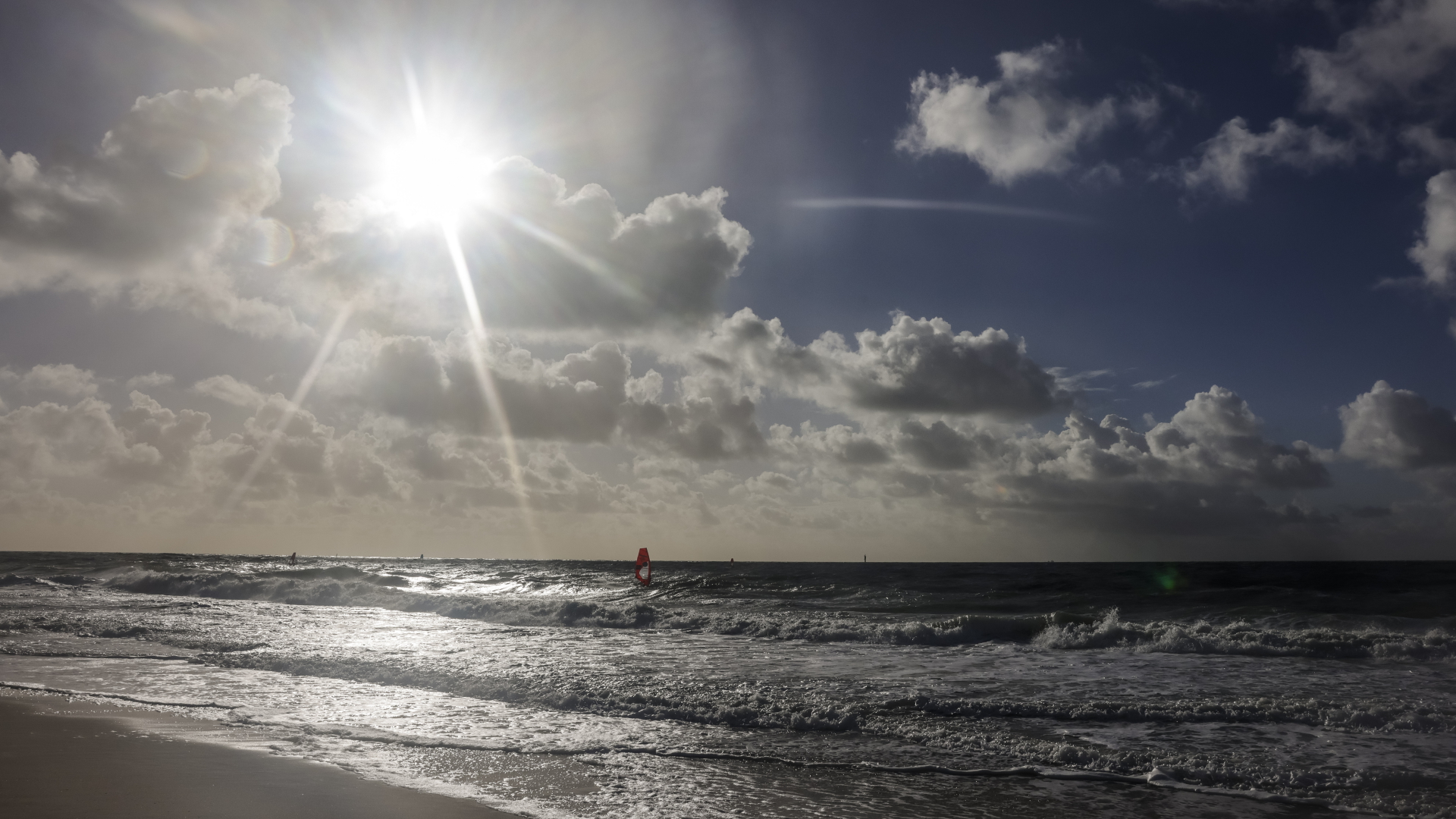As of 01/17/2023 9:03 PM
Last summer was the hottest in 25 years for the North Sea, according to the Federal Maritime Agency. In its report for this year, the bureau described the number of storm surges as “extraordinarily high”.
Last summer was the warmest in the North Sea since 1997. Surface temperatures were more than 1 degree above the long-term average, and those in the Baltic Sea were up to 1.5 degrees over a large area, as reported by the Federal Maritime and Hydrographic Agency (BSH) in Hamburg.
Heatwaves in the North Sea and Baltic Sea
North Sea measuring station “Lightship Deutsche Bight” recorded an eight-day marine heat wave in June. According to the BSH, temperatures at a depth of three meters during this time were two degrees higher than the long-term average.
Two heat waves were also recorded in the Baltic Sea in the summer months: in June/July and in August/September. The first lasted ten days, the second 19 days. Temperatures at a depth of 0.5 meters were three degrees above the long-term average.
Heavy storms increased
The bureau also determined the number of storm surges in its area year in review as “unusually high”. According to the BSH, six storms occurred from January 30 to February 7, 2022, including heavy storms. Shortly thereafter, the longest streak of storms since 1990 followed due to storm “Zainab” with seven storms. On February 19, a very severe storm occurred in Hamburg with 3.75 meters above average high water levels.
Drones measure sulfur levels
In order to verify compliance with the limit value for sulfur in bunker fuels, BSH has initiated a drone measurement campaign over the Cadet Canal north-east of the Gulf of Mecklenburg and Fämmernbilt in the western Baltic Sea. During 89 flights, the drone measured 210 exhaust plumes. It added that 0.10 percent sulfur content was permissible, and that nearly 98 percent of the ships inspected complied with the limit values.
In order to further develop and expand ship emissions control, BSH works closely with European countries such as Belgium, the Netherlands, Denmark, France, Sweden and Finland as well as the European Maritime Safety Agency. A similar campaign in the North Sea is planned for 2023.
Examine the effects of “scrubbers”
In addition, BSH examined the effects of ship-mounted exhaust gas scrubbers, called “scrubbers,” on the marine environment. In these plants, sulfur compounds are washed out using seawater.
BSH results showed that the analyzed wastewater samples are acidic and contain pollutants such as heavy metals, polycyclic aromatic hydrocarbons, and oil residues. For potential environmental consequences, the office classified the samples as “moderate to severely toxic with potential chronic effects.”

“Total coffee aficionado. Travel buff. Music ninja. Bacon nerd. Beeraholic.”








More Stories
Coral Seeding: Artificial Insemination Makes Coral More Heat Tolerant
Fear, Anger, and Denial: How People Respond to Climate Change – Research
LKH Graz: Using radiation to combat heart arrhythmias